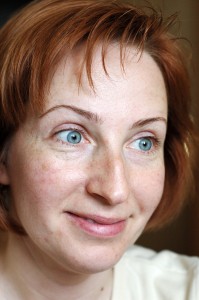 Do you or your man smile a lot? Do you find it sexy? Do you think he does? According to fyi Living website, attractive facial expressions vary between the sexes.
Do you or your man smile a lot? Do you find it sexy? Do you think he does? According to fyi Living website, attractive facial expressions vary between the sexes.
Recent studies suggest that men prefer women who bear smiles while women find that quality the most unattractive in a man.
So, which expression do women like the most and which one do men find the least attractive?
Like most things between the two sexes, this research suggests that it is the exact opposite. Women find a prideful expression on man to be the most attractive while men find a prideful expression on a women to be the least attractive.
Why are men and women opposites when it comes to emotion? Science’s take on this is that women find smiles to be more feminine; therefore, lacking dominance. Prideful expressions indicate a man’s ability to be a good provider; therefore, a strong mate and the most attractive facial expression.
Men on the other hand, love the feminine smile because it reflects a nurturing attitude reminding them of comfort and their mothers. An interesting finding from these studies is that men and women both find shame to be an attractive facial expression. We are a convoluted species.
What do you think of these findings? Do you think they bear any weight?
For additional information on men and women and what their body language is saying, take a look at this article from the Times of India.
 According to the Epoch Times blind people can “see” emotions. Ongoing research has discovered that blindsighted individuals can not only respond to emotional cues on other people’s faces but can also navigate around objects.
According to the Epoch Times blind people can “see” emotions. Ongoing research has discovered that blindsighted individuals can not only respond to emotional cues on other people’s faces but can also navigate around objects. Two recent studies show that acts of kindness such as doing a good deed or buying a gift as long as it’s for someone else will make you happier. Perhaps, that ‘s why Saint Nicholas AKA Santa Claus is so jolly.
Two recent studies show that acts of kindness such as doing a good deed or buying a gift as long as it’s for someone else will make you happier. Perhaps, that ‘s why Saint Nicholas AKA Santa Claus is so jolly.